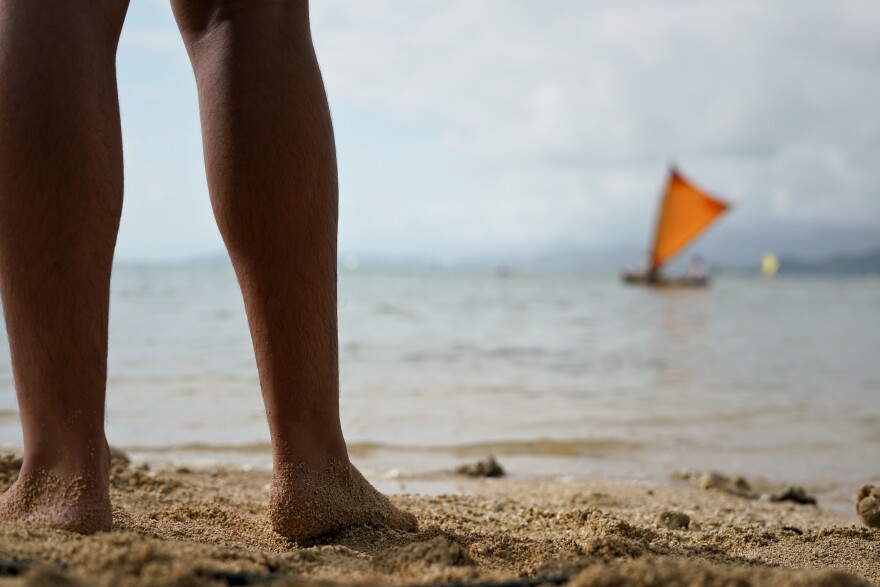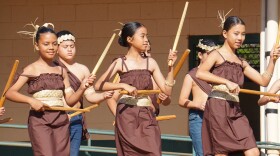Leaders from across the Pacific Islands arrived by canoe at Kualoa Bay on Oʻahu to start this year's Festival of the Pacific Arts and Culture.
The 10-day festival aims to promote cultural exchange among Pacific Islanders and highlight the importance of preserving and celebrating one's heritage.
Dozens of canoes carrying delegates from over 20 Pacific Island nations sailed into Hakipuʻu from Mōkapu on Wednesday.
The Waʻa Arrival Ceremony marked the start of this year’s Festival of the Pacific Arts and Culture, or FestPAC.
Taputapuātea Mayor Thomas Moutame said in French that it was a big day for his delegation and everyone gathered for FestPAC.
The festival is an opportunity, he said, to let the next generation of Pacific Islanders know where they are from and to remind them to be proud of their heritage.
FestPAC, held every four years, began in 1972 to promote cultural exchange among Pacific Islanders who feared Western influence would lead to a loss of culture and traditions. Hawaiʻi is hosting for the first time.
“I will say that it is very important because, you know, we were struggling to practice our culture,” said Micronesian Master Navigator Sesario Sewralur, who traveled to Hawaiʻi from Satawal, Yap.

Sewralur carries on the traditions taught to him by his father, Master Navigator Papa Mau Piailug.
“There are a lot of kids practicing now as they understand that, as a small island nation, navigation is the most important thing,” Sewralur said. “Being that we're very limited on resources, then we need to sail to different places to bring food for the whole community.”
Cultural exchange among Pacific Islanders over the last 50 years helped to revive many cultural traditions here in Hawaiʻi from tattooing to weaving, carving to navigation.
Many of the voyaging and double-hulled canoes at the Waʻa Arrival Ceremony would not have been there if not for visionaries like Papa Mau, said Master Navigator Nainoa Thompson.

“There were these dreamers that said let's recapture who we are. And the way to do that is to build a vehicle, a vehicle that connects every one of these nations — the waʻa, the canoe,” Thompson said. “And I would agree that we wouldn’t be here if it wasn’t for, his name is Piailug, Mau is a nickname. If it wasn’t for him, we wouldn’t be here.”
Thompson said solidarity among Pacific Island nations is key as islanders battle the impacts of climate change.
“We need to take care of this Earth. Otherwise, the Earth will always find a way to restore itself. The question is can humanity do that?” Thompson said.
“I’m not trying to scare anybody, but wildfires, hurricanes, sea level rising, who knows it better than those in the Pacific who had nothing to do with climate change but are suffering the first and the most? All of us.”
The official Opening Ceremony for FestPAC kicks off Thursday evening at the University of Hawaiʻi Stan Sheriff Center. Click here to learn more about attending this and other FestPAC events.





